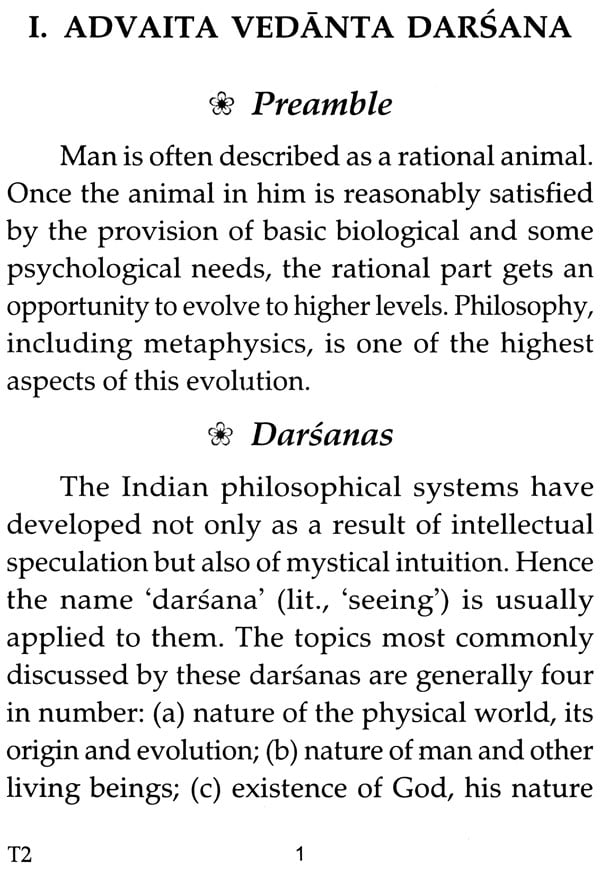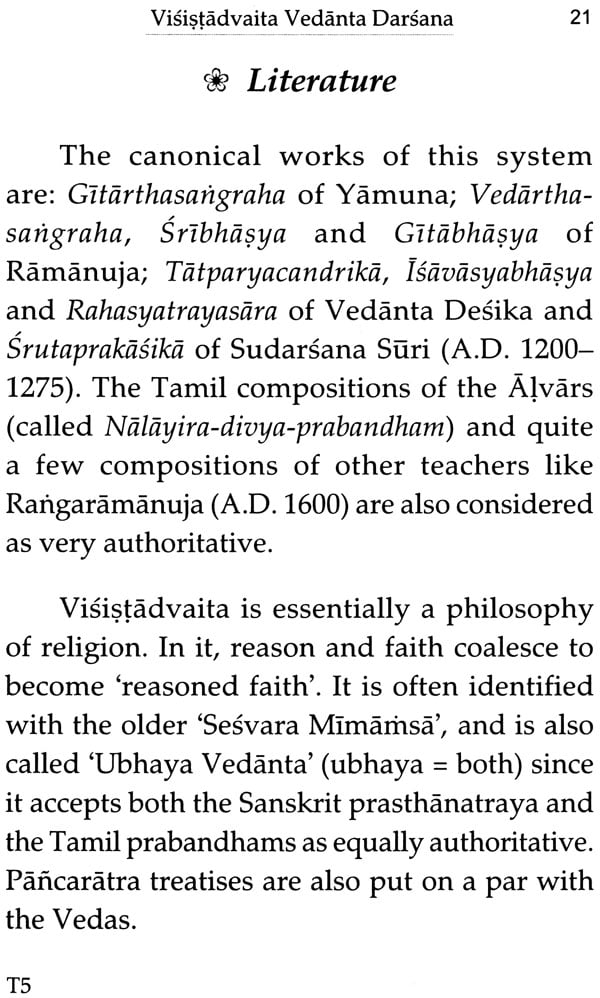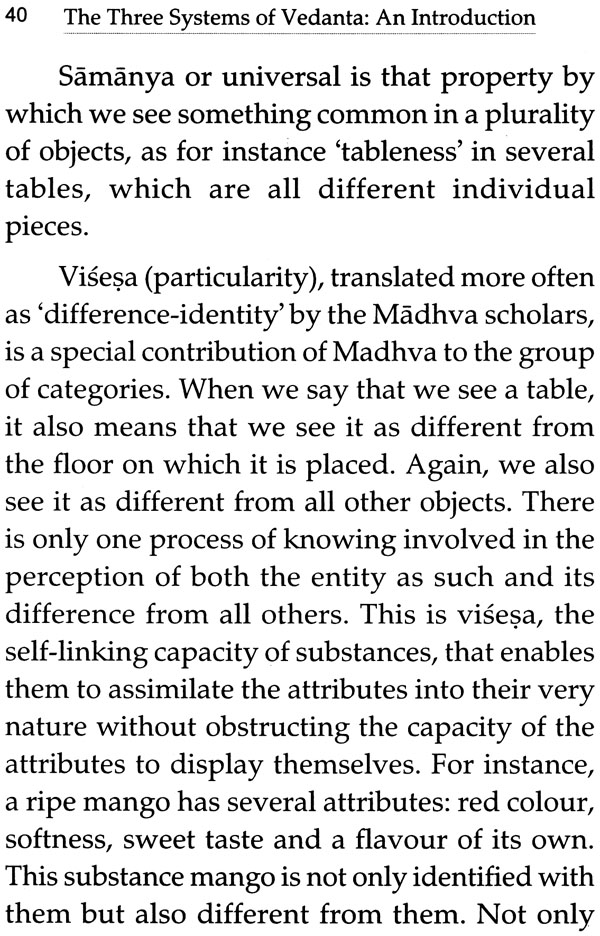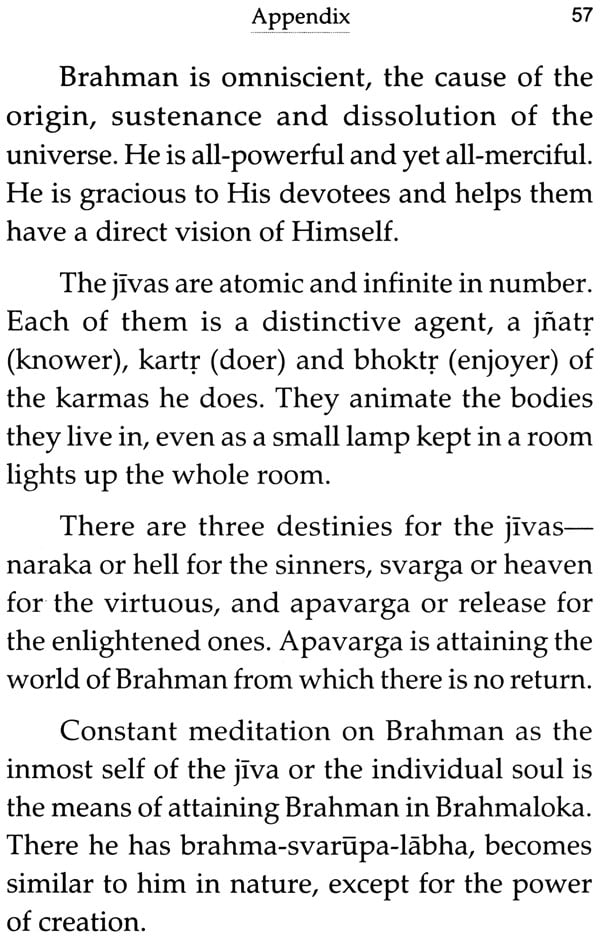
The Three Systems of Vedanta
Book Specification
| Item Code: | IDJ220 |
| Author: | Swami Harshananda |
| Publisher: | Ramakrishna Math, Bangalore |
| Language: | English |
| Edition: | 2016 |
| ISBN: | 9788178837048 |
| Pages: | 46 |
| Cover: | Paperback |
| Other Details | 7.0 inch X 4.5 inch |
| Weight | 40 gm |
Book Description
Vedanta is considered to be the epitome of Indian philosophical thought. However, not many are aware that Vedanta comprises of many systems, three being more popular.
The author of this book, Swami Harshananda, a senior monk of the Ramakrishna Order, has succinctly yet effectively given an overview of the main systems of Vedanta thought.
PREFACE
Vedanta is neither recondite nor impractical. If presented properly, studied earnestly and understood with an unsophisticated heart, it can be a source of inspiration here and now. The holistic view of the universe that it offers, with its stress on the Divine permeating or controlling every aspect, can help us to elevate our mind from the microcosm to the macrocosm, from the mundane to the mystic levels.
Though the original source of Vedanta- the prasthanatraya- is one, its interpretations are many. In this booklet, an outline of the three major-rather, more well known-systems is given. A brief summary of four more, has been added at the end as an appendix.
We do hope that this brochure will rouse the curiosity of the reader to study these systems more comprehensively.
| Publisher's Note | iii | |
| Author's Preface | iv | |
| Key to Diacritical Mark and their Pronunciation | v | |
| I. | ADVAITA VEDANTA DARSANA | |
| Preamble | 1 | |
| Darsanas | 1 | |
| Vedanta Darsana | 2 | |
| Advaita Vedanta | 3 | |
| Brahman, the only Reality | 3 | |
| Anirvacanuya Khyati | 4 | |
| Ajnana or Avidya | 6 | |
| Maya | 6 | |
| Three Degrees of Reality | 7 | |
| Creation | 8 | |
| Jiva | 9 | |
| Sadhanas and Mukti | 10 | |
| Jivanamukti and Videhamukti | 12 | |
| Locus of Avidya | 13 | |
| Post-Sankara Advatia | 13 | |
| Conclusion | 18 | |
| II. | VISISTADVAITA VEDANTA DARSANA | |
| Introduction | 19 | |
| Literature | 21 | |
| Visions | 44 | |
| Epistemology | 22 | |
| Ontology | 24 | |
| Means of Liberation | 29 | |
| State of Liberation | 32 | |
| Conclusion | 33 | |
| III. | DVAITA VEDANTA DARSANA | |
| Introduction | 34 | |
| Dvaita literature | 35 | |
| Philosophy | 36 | |
| Pramanas | 36 | |
| Prameyas | 38 | |
| Theology | 43 | |
| Brahman or God | 43 | |
| Laksmi | 45 | |
| Jivas or Individual Souls | 45 | |
| Prakrit or Nature | 47 | |
| Avyakrta-Akasa or Unmodified | 49 | |
| Moksa or Liberation | 49 | |
| Conclusion | 52 | |
| IV. | APPENDIX | |
| Bhaskara (A.D. 996-1061) | 53 | |
| Nimbraka (13th Cent. A.D.) | 55 | |
| Vallabha (A.D. 1479-1544) | 58 | |
| Baladeva (A.D. 1725) | 62 |









